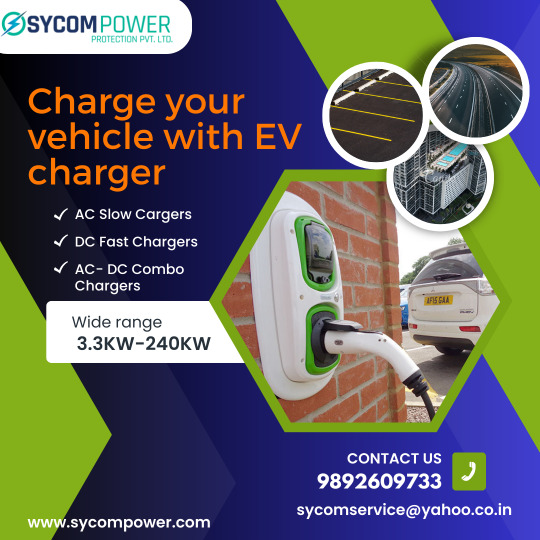#EV AC charger
Text
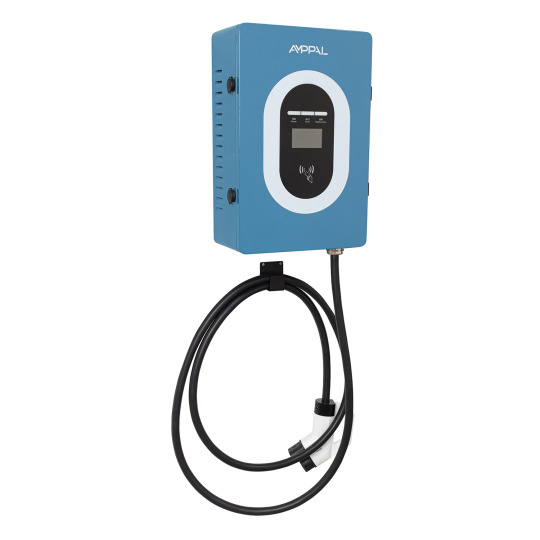
20KW/30KW DC charging station
Charging method : Swipe card , App , Password , VIN code
Network method : Ethernet . 4G
Application : Commercial charging
Standard : CCS1 , CCS2 , CHAdeMO , GB/T
Contact Info:
Whatsapp/Wechat : +86 15088955792
Email : [email protected]
#Charging station#EV charging station#EV charging pile#AC charging station#DC charging station#AC charging pile#DC charging pile#EV AC charging pile#EV DC charging pile#EV AC charging station#EV DC charging station#EV AC charger#EV DC charger
0 notes
Text
EV AC charger Controller - AC Charging kit for Car
Get a charge in your electric car with My Power Experts EV AC Charger Controller! This AC charging kit has everything you need to get your EV up and running quickly and safely. The easy-to-use design allows you to charge your car with confidence, while the advanced features ensure you always get the best charging performance. Don't wait any longer - get your EV AC Charger Controller today and start enjoying the convenience of electric car charging! click here - https://mypowerexperts.com
#EV ac charger#AC Charging kit for Car#AC charger Controller#ev car charger#ev charging#ev charger#electric vehicles
0 notes
Text
Leading the Charge with BSA Co-CEOs Richard Bartley and Arno Becker on Australia's EV Future
The electric vehicle market in Australia continues to boom – last year we saw a 161% increase in EV sales compared from 2022. Growth has continued this year, with EVs comprising 10% of all car sales, compared to 8% last year. As demand grows, questions surrounding the readiness of the country’s charging infrastructure have arisen, and while the Government invests in more infrastructure this year,…
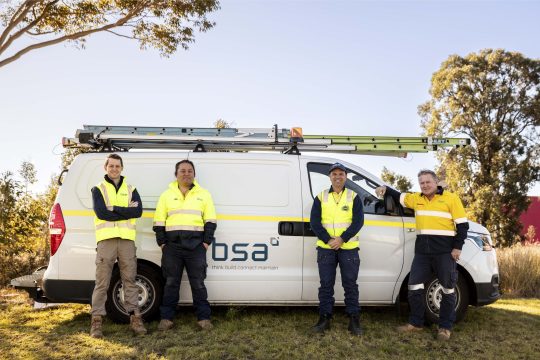
View On WordPress
#AC charging#Arno Becker#Australia#BSA#BSA Limited#census data#charge at home#Chargepoint#charging stations#commercial charging#consultancy#cost of living#DC charging#Economic Benefits#economic impact#electric car#electric vehicles#energy transition#EV#EV adoption#EV benefits#EV chargers#EV Market#EV partnerships#EV rollout#fast chargers#fuel savings#future plans#government grants#green energy
0 notes
Text
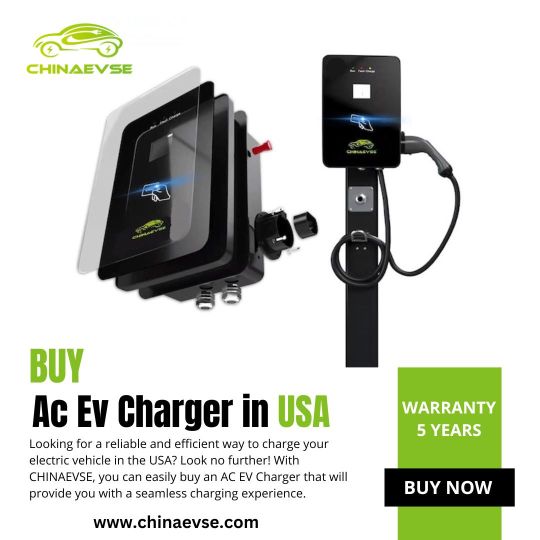
Buy AC EV Charger in USA - CHINAEVSE
Charge your electric vehicle conveniently with the CHINAEVSE AC EV Charger. This high-quality charger is designed to provide a reliable and efficient charging experience. With its user-friendly interface and durable construction, you can trust that your vehicle will be charged safely and quickly.
1 note
·
View note
Text
Amount 2 charging areas, also known while Electric Vehicle Provide Equipment
Selecting the best Type 2 Receiving Station
As your EV market increases, the need pertaining to reliable, convenient charging stations is increasingly important. Choosing the right charger type is dependent upon your electric vehicle’s battery size and driving needs. EV drivers can make from Level 3, Level 3, along with DCFC options. Read on to find out about each type associated with charging station along with what its key features are.
Amount 2 charging areas, also known while Electric Vehicle Provide Equipment (EVSE) or J1772, are the best common type of charger obtained in homes and open public areas. They provide a power output of approximately 22 kW and will charge most EVs throughout about 6-8 hours. Level 2 asking stations are relatively affordable to install and compatible along with most EVs available. China AC EV Car Charger Manufacturers They can end up being used for suddenly charging to benefit from off-peak electricity premiums, or they is often installed at businesses to make EV owners using a place to fee while they do the job.
EV drivers incorporate the use of a standard 240-volt store to power their own car, but a lot of prefer dedicated EV getting equipment for speed and reliability. If you are home isn’t equipped with a 240-volt store, you can have a very Level 2 charger mounted by an domestic electrical engineer. However, you’ll have to be sure your home’s utility system can handle the higher power load of your Level 2 charger before trying out one.
While the speed on the level 2 charger probably are not as fast as being a level 3 charger, it’s still fast enough to provide most EV owners which has a significant return. Additionally, installing a Amount 2 charging station could be cheaper than upgrading your building’s electrical infrastructure for any level 3 getting solution.
If your enterprise has a excessive volume of long-distance outings, a Level THREE OR MORE charging station could possibly be worth the in advance installation costs. Level 3 charging stations could be equipped with innovative features like touching screen displays, video tutorial instructions, and voice guidance that will reduce driver fault and improve total efficiency. They are capable of delivering about 43 kW associated with power, which can ask for most EVs in just over an hour.
Choosing the best charging station on your EV is necessary to its longevity along with performance. As the EV market is growing, it’s important look for investment advice in charging stations that happen to be compatible with the majority of EV models that you can buy. With a different different options accessible, it can be difficult to be aware of which one is right for you. Consider your business’s distinct EV charging desires and battery size when making a decision.
1 note
·
View note
Text
22KW AC EV Charger Tethered Wallbox
RELIGARE 22KW AC EV charger tethered wall box, simple but very safe. Just Plug and Play only requires the user to plug in the gun to start charging and unplug it to stop. We guarantee its safety and simplicity so that you can fully enjoy your charging experience without other measures.
Highlight Of 22KW AC EV Charger Tethered Wallbox
With the benefits of DLB, the LIA 22KW AC EV charger tethered wall box helps to optimize the household power load management, by monitoring the instant power consumption of the house system, and automatically adjusting its output charging power, both power increase and decrease. It will contain the total power consumption below the max capacity of the main system load, and avoid the unexpected tripping of the main circuit breaker due to overload.
With the Built-in type B RCD, LIA 22KW AC EV charger tethered wall box can offer Overvoltage Protection, Under Voltage Protection, Overload Protection, Short Circuit Protection, Earth leakage Protection, Ground Protection, Over-temp Protection and etc.
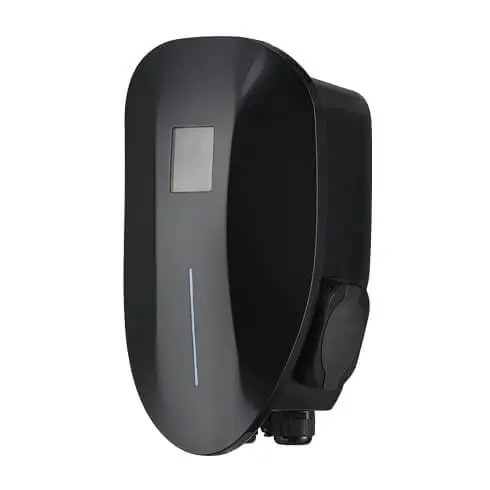
1 note
·
View note
Text
🔌⚡ BOOK NOW: Elevate Your EV Experience with Charge Zone Chargers! ⚡🔌
Looking for top-notch AC & DC chargers for your electric vehicle? Look no further! Charge Zone brings you cutting-edge technology for a seamless charging experience. 🚗⚡
Explore our range of products:
DC Fast Charging Stations
DC Charging Station
DC EV Charger
DC Fast Charger Manufacturers in India
AC Charger Manufacturers
DC Fast Charger Manufacturer
Type 2 AC Charger for EV
AC Charger
Car Charging Point
EV Charging Solution
Don't miss out on the future of charging! Book now for convenience and efficiency. 🔋💡
https://chargezone.com/shop.html
#dc fast charging stations#dc charging station#dc ev charger#dc fast charger manufacturers in india#ac charger manufacturers#dc fast charger manufacturer#type 2 ac charger for ev#ac charger#car charging point#ev charging solution
0 notes
Text
Examining AC and DC EV chargers
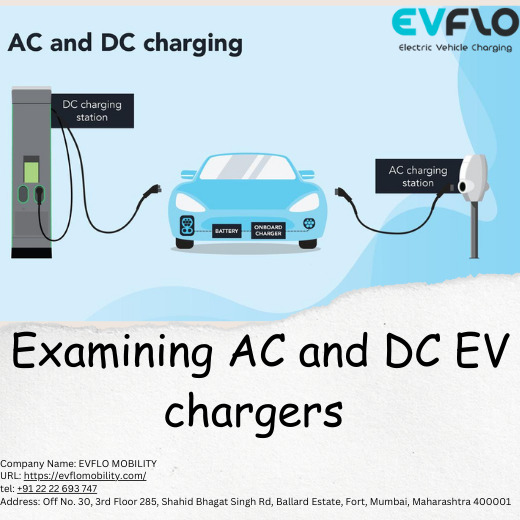
Electric cars are a new concept. Recently, EVs drew attention from a specific group of enthusiasts. EVs mechanism is not dependent on gasoline fuels. It functions through a battery power that needs charging.
There are 2 types of chargers available in the market. AC ( Alternating Current) and DC ( Direct Current) power. AC chargers are suitable for residential charging stations or home charging. DC chargers are ideal for commercial charging, public places, or outdoor charging stations.
AC charging for EVs
AC is the power that flows from the electric grid. The AC current gets converted to DC current through a converter that is built inside or outside the vehicle.
DC chargers for EVs
In a DC charger, the converter is a part of the charger itself. It directly feeds power. DC chargers are expensive and faster than EVs.
Key differences between AC and DC chargers
Space
The AC chargers require less space compared to DC chargers. The residential ev charging solutions suggested that AC chargers are ideal for home charging or residential charging while DC chargers need large space for installation.
Cost
Installation of AC chargers by ev ac charger contractors is less cost-consuming than installing a DC charger. DC chargers are ideal for commercial charging, public places and more.
Speed
It takes 4-5 hours for your EV to charge from an AC charger while it takes just 40-50 minutes for your EV to charge with DC chargers. DC chargers are high-voltage chargers suitable for outdoor public charging stations.
Advantages of AC chargers.
AC charging is the most common and most used for electric vehicles.
The converter that converts AC power to DC power is either build inside the vehicle or outside.
It takes 4-5 hours to fully charge electric vehicle battery power.
AC chargers are suitable for home charging or residential complex charging.
Installation of AC charger is less expensive
The repair and maintenance of AC chargers are minimal
Advantages of DC charger.
DC chargers directly sustain the power to the electric vehicle's battery.
DC chargers are expensive and the installation charges are high.
DC chargers are faster, It takes only 40-50 minutes to fully charge the electric vehicle's battery.
The converter that converts the AC power to DC is built inside the DC chargers.
DC chargers are suitable for long-distance travel.
DC chargers contain high voltage.
DC chargers are ideal for public places like malls, hubs, and commercial places. It is best suitable for the installation of an outdoor public charging station.
Conclusion:
When it comes to charging your electric vehicle, every vehicle's requirements vary. The type of charger depends on the need, cost, speed and space available. The majority of EV owners use AC chargers for home charging or residential complex charging. Both AC and DC chargers have their own advantages. If you want to have a smooth installation experience of an electric vehicle charging station, Contact an ev ac charger contractors.
Company Name: EVFLO MOBILITY
URL: https://evflomobility.com/
tel: +91 22 22 693 747
Address: Off No. 30, 3rd Floor 285, Shahid Bhagat Singh Rd, Ballard Estate, Fort, Mumbai, Maharashtra 400001
0 notes
Text
EV charger repairing courses
There are many EV charger repairing courses available online and in person. Some of the most popular courses include:
Acpcbreparing Institute offers an online EV charger repairing course that covers the basics of electric vehicle charging technology, including the different types of EV chargers, how to install and maintain EV chargers, and how to troubleshoot common EV charger problems.
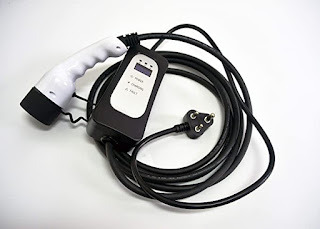
ACpcbreparing Institute EV charger repairing courseOpens in a new window
SlideShare
Acpcbreparing Institute EV charger repairing course
EV Charging Solutions offers an in-person EV charger repairing course that covers the same topics as the Multitech Institute course, but also includes hands-on training on repairing EV chargers.
EV Charging Solutions EV charger repairing courseOpens in a new window
Instructables
EV Charging Solutions EV charger repairing course
The Electric Vehicle Institute offers an online EV charger repairing course that is designed for electricians who want to learn how to install and maintain EV chargers.
Electric Vehicle Institute EV charger repairing courseOpens in a new window
Academy of EV Technology
Once you have completed an EV charger repairing course, you will be able to:
Install and maintain EV chargers
Troubleshooting common EV charger problems
Provide customer service to EV charger owners
The demand for EV charger repairers is expected to grow in the coming years as the number of electric vehicles on the road increases. If you are interested in a career in EV charging, an EV charger repairing course can help you gain the skills and knowledge you need to be successful.
0 notes
Text

AC charging station 7KW type
Charging method : Swipe card , Scan code , Password , VIN code
Network method : Ethernet , 4G
Application : Home charging
The AC charging station provides AC 50Hz, rated voltage 220V AC power supply, and is supplied to an electric vehicle with a vehicle charger.Mainly applicable to the following places large, medium and small electric vehicle charging stations;
Various public places with electric car parking spaces, such as urban residential quarters, shopping plazas, and electric power business places;
High-speed service area, station terminal and other transportation hub areas.
Contact Info:
Whatsapp/Wechat : +86 15088955792
Email : [email protected]
#EV charger#Charging station#Charging pile#AC charger#DC charger#DC charging station#AC charging station
0 notes
Text
California Considers Electric Car V2G Charging Tech for Grid Stability
The idea of using coordinated electric-car charging to stabilize the grid has been discussed for years, but is still in early stages of development. California regulators now hope to bring so-called "vehicle-to-grid" (V2G) technology into focus.
V2G requires cars that can discharge power back into the grid, something that isn't widely available, but the California Public Utilities Commission (CPUC) is expected to issue a decision calling for discussion of the feasibility of V2G, according to E&E News.
The potential benefit of V2G is the ability to "balance" the grid by using fleets of electric cars to absorb excess electricity during periods of low demand, and discharge it during periods of high demand. This allows grid infrastructure to operate at a more stable pace, which saves wear and tear, and allows EVs to supplement power plants or renewable-energy sources when demand is especially high.
That could help head off the rolling blackouts California experienced last summer, which forced utilities to use diesel generators to keep the power on. It's one of the scenarios the CPUC plans to highlight at a workshop on V2G tech.
V2G isn't ready for commercialization, however. The CPUC is simply looking at how the technology could fit into its regulatory framework, as well as existing grid infrastructure. The question is whether this will move things forward appreciably beyond previous V2G studies.
Two California utilities have studied V2G. Southern California Edison (SCE) announced plans for a demonstration project last year, while Pacific Gas & Electric (PG&E) announced last month it's working working with BMW on a study involving actual EV owners.
In a pilot program that wrapped up in 2017, the two companies coordinated the timing of charging for some BMW i3 electric cars to lessen the strain on the grid. About 100 i3 owners in the San Francisco Bay Area were enrolled in the program, which ran for 18 months. PG&E and BMW just announced a next-step study of smart-charging systems and EV drivers—essentially seeing what difference it might make to simply change the time that EV owners charge, to smooth the grid load.
While clear regulations and utility cooperation are key elements of a workable V2G system, cars also need the hardware to discharge power back into the grid.
Audi and Volkswagen are testing bi-directional charging hardware in EVs, and Hyundai has said this will be a feature of its new E-GMP modular EV platform. The Nissan Leaf has also had this ability engineered into it—with additional hardware—but right now most of the electric cars on United States roads don't have that capability.
Fiver New Energy Technology Co.,ltd Specializing in Electric Vehicle Charger and EVSE Infrastructure solution. It was established because of the growing popularity of EV, especially for the development of our future green city with the convenience of smart mobility. We share the vision of China Government to transition the town to smart city by building up the manageable, interoperable and sustainable smart charger infrastructure. Browse our website for more details https://www.fiverevse.com.
0 notes
Text
Portable EV Chargers: Charge Your Electric Vehicle Anywhere, Anytime
Electric vehicles (EVs) are becoming increasingly popular due to their environmental benefits, lower running costs, and technological advancements. However, one of the main concerns of owning an EV is finding a charging station when you’re on the road. This is where portable EV chargers come in. In this blog post, we will explore the benefits of portable EV chargers and how they work.
EXPLORE…

View On WordPress
#A#AC power#Adapter cables#Charging#Convenience#Convenient and cost-effective portable EV chargers for electric vehicles#Cost-effective#DC power#Efficient AC to DC power conversion for EV charging using portable chargers#Electric vehicles#Emergency Backup#Emergency backup power for electric vehicles: Portable EV chargers with built-in batteries#Exploring the benefits of portable EV chargers for environmentally conscious drivers#Maximizing the range of your electric vehicle with portable EV chargers and regenerative braking#Never run out of charge with portable EV chargers and adapter cables#Portability#Portable EV Chargers#Portable EV chargers: The future of charging for electric vehicles#Portable EV chargers: The solution for charging electric vehicles on-the-go#Stay charged on your road trip with portable EV chargers and solar panels#The portability advantage: Why you should invest in a portable EV charger for your electric vehicle
0 notes
Text
Technical principle of AC EV Charger
Are you considering buying an electric vehicle and wondering how to charge it efficiently? Look no further than the technical principle of AC EV chargers! Understanding the technology behind these charging stations can help you make informed decisions about which charger is best for your needs.
An AC EV charger is a device that charges an electric vehicle's battery using alternating current. The charger converts the AC power from the electrical grid into DC power, which is then used to charge the battery.AC EV chargers are available in a variety of sizes and configurations, depending on the needs of the electric vehicle. Some chargers are portable and can be plugged into a standard outlet, while others are permanently installed in a garage or other location. Most AC EV chargers have a display that shows the charging status and estimated time to full charge.
The Different Types of AC EV Chargers
AC Level 1 EV Chargers:
An AC Level 1 EV charger is the slowest type of charger and uses a 120-volt AC outlet. These chargers are typically found in homes and office buildings and can charge an electric vehicle overnight. Many newer EVs come with an AC Level 1 charger, but it’s important to check with your manufacturer to see if your car is compatible.
AC Level 2 EV Chargers:
An AC Level 2 EV charger is a faster option that uses a 240-volt AC outlet, like those often found in garages and RVs. These types of chargers can fully charge most EVs in 4-6 hours. If you’re considering purchasing an AC Level 2 charger, be sure to check with your local building codes to ensure installation is up to code.
What are the benefits of an AC EV charger?
The main benefits of an AC EV charger are that it is much cheaper to install than a DC charger, and that it is much more efficient. AC chargers are also much smaller and lighter than DC chargers, making them easier to install and transport.
How does an AC EV charger work?
There are two main types of AC EV chargers: Level 1 and Level 2. Level 1 chargers use 120-volt AC power and can charge an electric vehicle (EV) in 8 to 12 hours. A Level 2 charger uses 240-volt AC power and can charge an EV in 3 to 6 hours. Most public EV charging stations are Level 2.
How does a Level 1 AC EV charger work?
A Level 1 charger plugs into a standard 120-volt outlet and uses alternating current (AC) to slowly charge an EV’s battery. A Level 1 charger is the slowest type of charger, but it is also the most convenient since it can be plugged into any standard outlet. It typically takes 8 to 12 hours to charge an EV with a Level 1 charger.
How does a Level 2 AC EV charger work?
A Level 2 charger plugs into a 240-volt outlet and uses alternating current (AC) to charge an EV’s battery much faster than a Level 1 charger. A Level 2 charger is usually installed in a garage or carport, and it typically takes 3 to 6 hours to charge an EV battery using this type of charger.
The technical principle of AC EV Chargers is incredibly important to understand in order to ensure we can make the most efficient use of this technology. Implementing an AC EV Charger correctly allows us to get the most out of our electric vehicle's battery and charging system, ensuring that it meets all safety requirements. With its high efficiency, easy installation process and relatively low cost, the AC EV charger is one of the best solutions for home or business owners looking to reduce their carbon emissions while still enjoying a reliable source of renewable energy.
0 notes
Text
AC Charge Controller India - EV Charge Controller
My Power Experts is an AC Charge Controller provider in India that serves various needs with its various outputs. We are a trusted service provider of AC Charge Controllers in India, we provide an array of AC Charge Controllers to facilitate the charging process of the devices. Our AC Charge Controller is available in various models and capacities to fulfill your diverse charging needs. You can find them online at My Power Experts website. Click here to know more - https://mypowerexperts.com/services/
0 notes
Text
Future of EV charging Manufacturers
The future of electric vehicle (EV) charging equipment manufacturing is likely to see continued growth and innovation as the demand for EVs increases and charging technology improves. Some of the trends and developments that can be expected in the future include:
Widespread adoption of fast charging: As the range and battery capacity of EVs improves, the demand for fast charging will continue to increase, driving the development of faster and more efficient chargers.
Integration with renewable energy: Charging stations will increasingly be powered by renewable energy sources, such as solar and wind, to reduce their carbon footprint and increase sustainability.
Wireless charging: Wireless charging technology for EVs is still in its early stages, but it has the potential to simplify the charging process and make charging even more convenient.
Expansion of charging networks: With the growth of EVs, the expansion of charging networks will become a priority, with manufacturers working to create charging stations that are easy to install, operate and maintain.
Competition and consolidation: The EV charging market is expected to become increasingly competitive, with established manufacturers and new entrants competing for market share. Consolidation is also expected as smaller players are acquired by larger companies.
Overall, the future of EV charging equipment manufacturing is bright, with a continued focus on making charging more convenient, efficient, and sustainable.
0 notes
